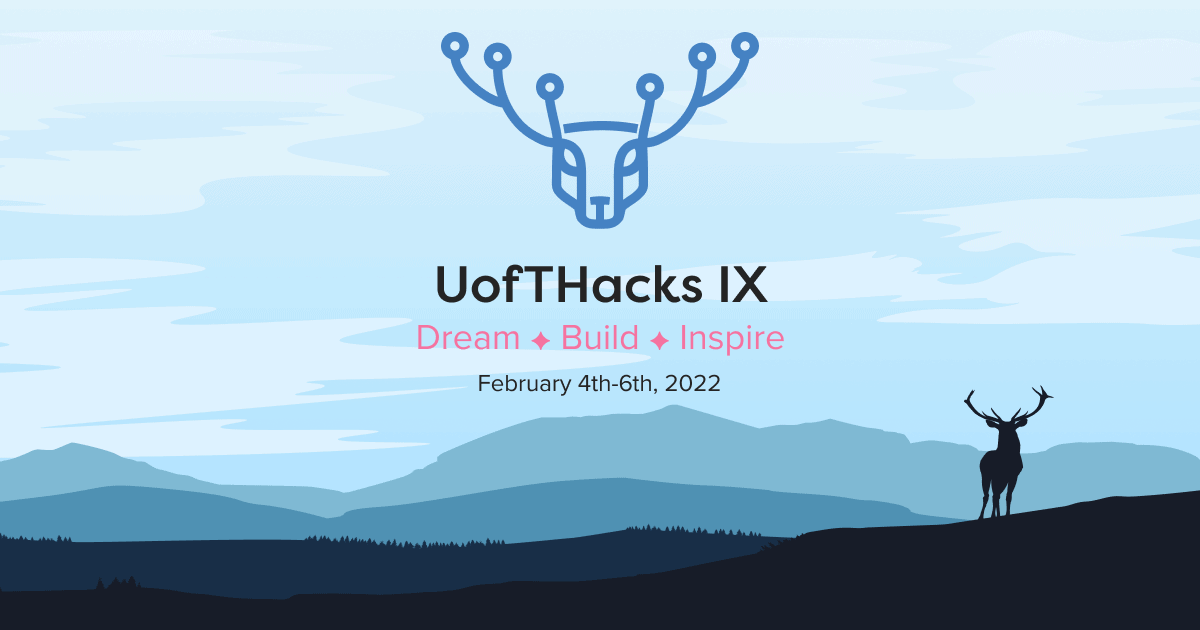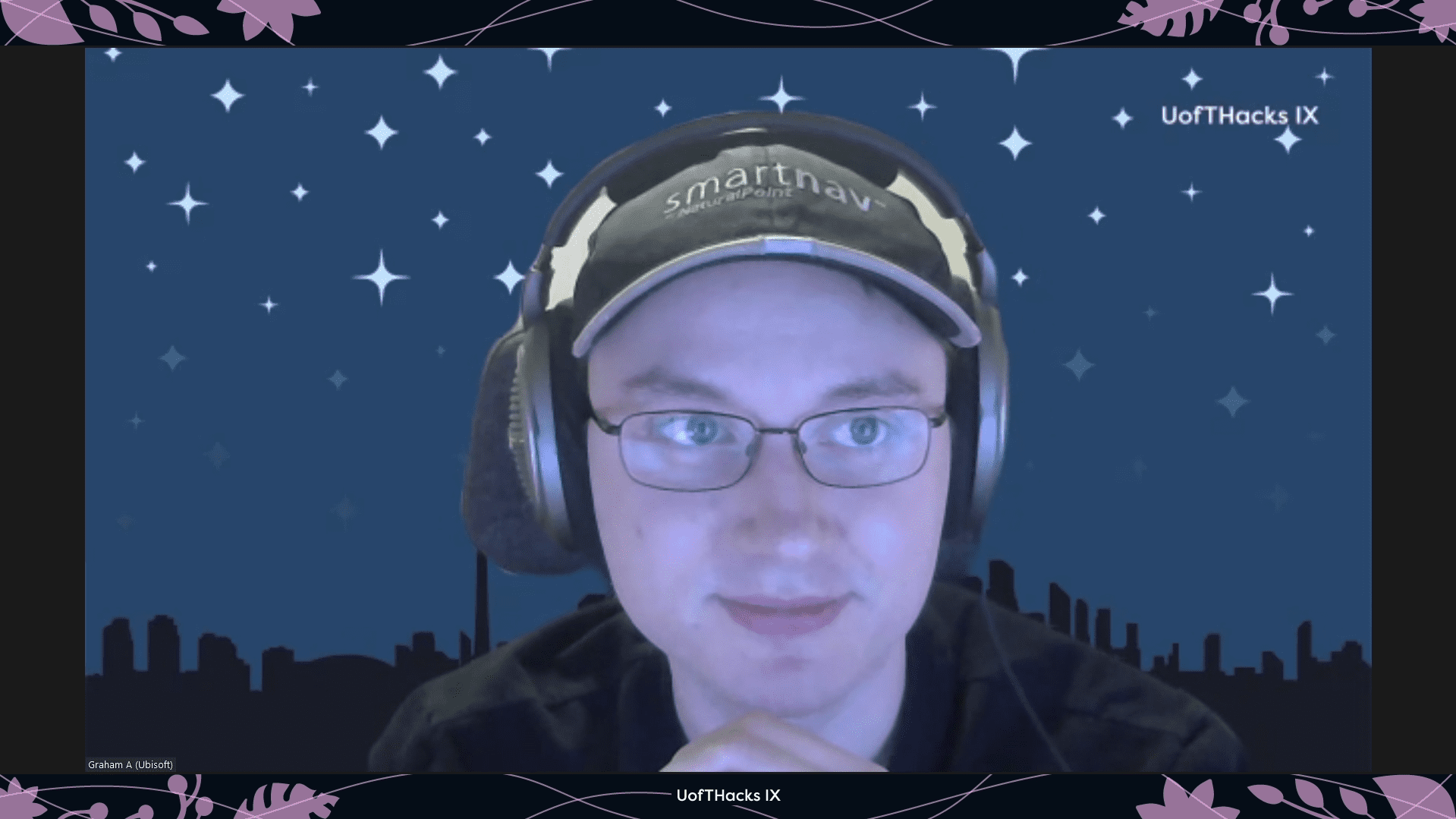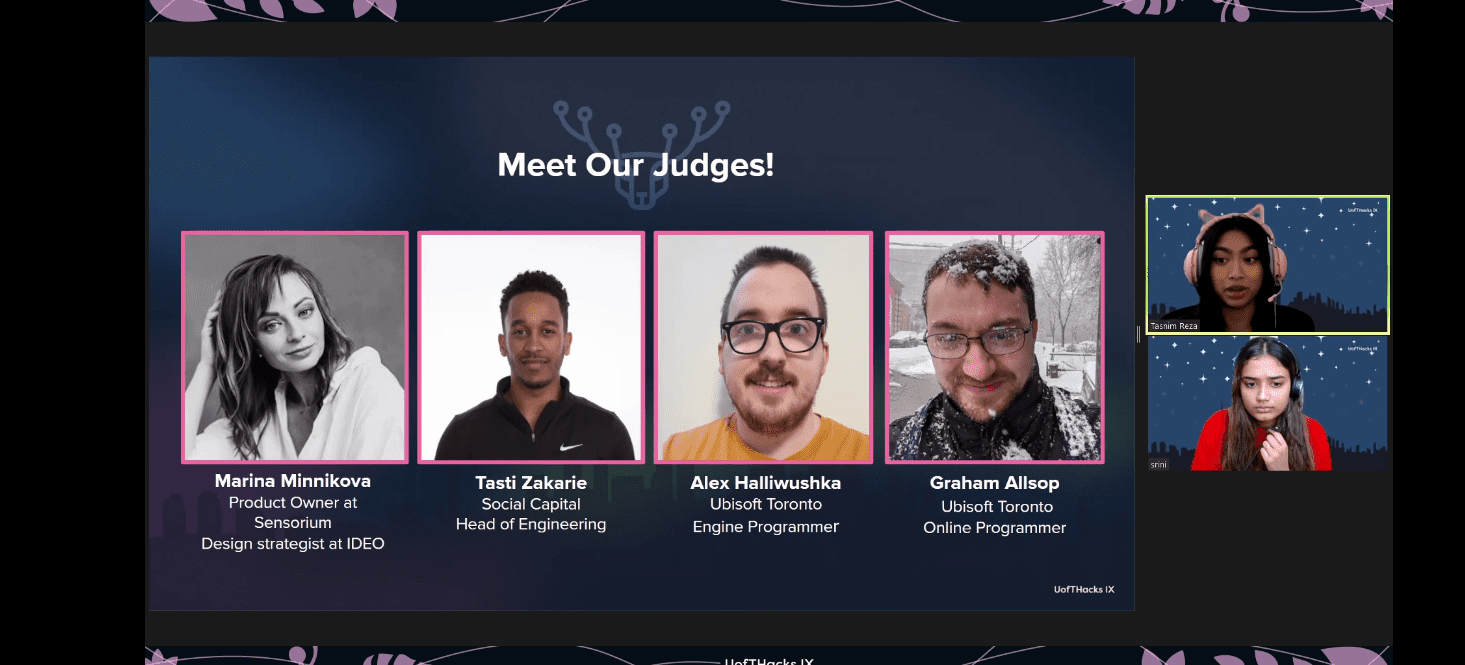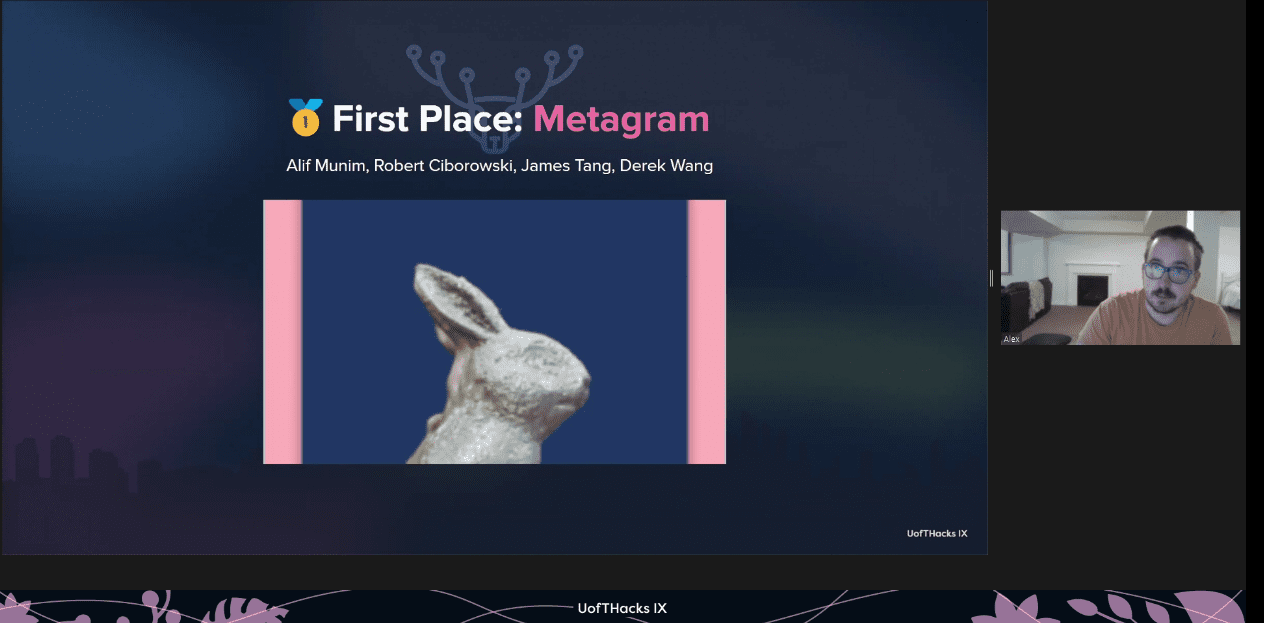
Ubisoft Toronto mentors participated in U of T Hacks, Canada’s first student-run hackathon, over the weekend. During the virtual event, mentors met over 300 creative, passionate, and innovative students embarking on a challenge to build unique, meaningful projects.
Over the course of the weekend, students networked with industry leaders, participated in workshops, and put their heads together to solve major challenges in tech!

Graham Allsop, Online Programmer
Graham Allsop, Online Programmer on Watch Dogs 2 and Watch Dogs: Legion, kicked off the event with opening remarks on programming and the value of iteration.
When it comes down to it, a programmer’s job is to solve problems and think outside the box. And often your first solution for any technical challenge — be it fixing bugs or optimizing code — will not be your last.
In his last year at the University of Toronto, prior to joining our studio, Graham spent a summer building a city simulator game with friends. The game did not turn out as they expected, and, in hindsight, Allsop says that he would have done a lot of things differently. But that lesson landed him where he is now.
By getting our hands dirty, we’d been exposed to a whole host of problems that we otherwise wouldn’t have. While the game was far from perfect, it was a valuable teaching tool in how to address and overcome challenges in development,” says Allsop.

U of T Hacks Judges and Winners
Each year, U of T Hacks selects a theme. This year’s theme was restoration, and students were tasked to come up with ideas to benefit small businesses and the environment amid the pandemic.
Allsop and Alexander Halliwushka, Engine Programmer, were part of the panel and were amazed by students’ talent and unique ideas!

First Place: Metagram
First place was awarded to Alif Munin, Robert Ciborowski, James Tang, and Derek Wang for the Augmented Reality app, Metagram. The social networking site allows users to have an in-person shopping experience at home! Meant to encourage individuals to support small businesses, the app was chosen as a winner for being timely, clever, and sporting a clean design.
To learn more about U of T Hacks, visit their website.
We take part in hackathons all year round! Want to get involved? Follow Ubisoft Toronto on Twitter, Instagram and LinkedIn.

